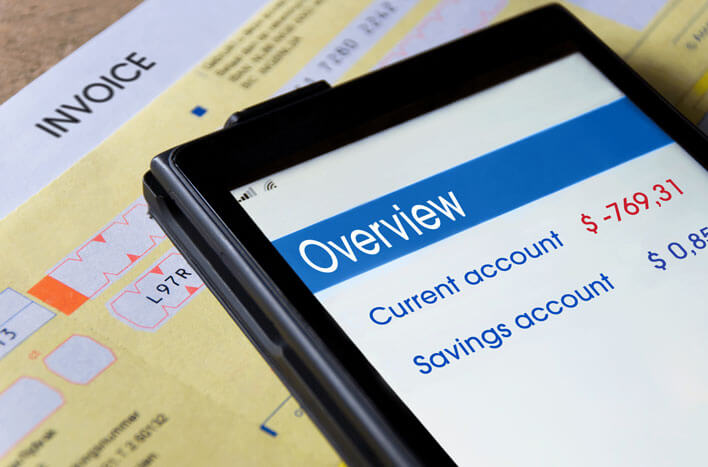With the busyness that comes with the start of a new year, it can be easy for your finances to feel overwhelming and hard to keep track of. However, if you’re not careful, you might end up with an unexpected surprise: an overdraft fee. Overdraft fees can be a costly and unnecessary expense, so it is important to closely monitor your finances to avoid any unwanted charges from the bank, ultimately keeping more money in your pocket. Here are six tips to help you avoid overdraft fees:
1. Do your research.
Cash flow is essential to a thriving business and is the lifeblood of your company. It’s crucial for small businesses to manage current cash needs while planning for the future. Monthly predictions won’t provide the insight you need, instead, you should analyze annual forecasts for a more in-depth picture of your cash flow to identify the peak and off-peak seasons. A more in-depth understanding of your company’s cash flow, both incoming and outgoing, will give you a better chance of succeeding - not just today, but for years to come.
2. Choose a checking account with lower risk.
After you have done your research, consider choosing a checking account with lower overdraft fees. For an extra layer of protection, some checking accounts do not authorize overdrafts, mitigating your risk of a charge altogether.
3. Keep track of your checking account and posting order.
Record any ATM withdrawals, deposits, and debit card transactions you complete, including the times you expect a transaction to post. Sometimes transactions can take multiple days to withdraw the money from your account, so even if you’re paying close attention to your balance, it might not be telling you the whole story. Keeping records of your financial activity will give you a better picture of where you stand financially and keep you from making a financial decision you think you have the funds for and then later find out you don’t.
4. Keep track of your automated payments and account balance.
On top of monitoring your ATM withdrawals, deposits, and debit card transactions, it is also important to consider that some automatic payments and checks might not have cleared yet. Keep track of what automated payments you have scheduled and which day of the month they are posted. This will allow you to make sure that you have the proper balances in those accounts.
5. Review your statements regularly.
Regularly check your account statements for any suspicious activity or unexpected charges. Staying consistent with monitoring your account will give you time to dispute any charges before things get out of hand, saving you time and peace of mind in the long run.
6. Link your checking account to a savings or credit account.
Linking to another account allows your bank or credit union to pull funds from your savings or credit card to cover a transaction, in the event that you exceed your checking account balance. While the transfer from a linked account may still incur a transfer fee, it is typically lower than an overdraft or NSF (non-sufficient funds) fee.
Want to learn more?
The start of a new year is the perfect time to develop proper budgeting, planning, and monitoring habits that will help you steer clear of any unwanted fees. Although accidents happen, following these tips will help mitigate your risk of finding your account overdrawn. Learn more about preventing overdraft fees in our Financial Education Center.




